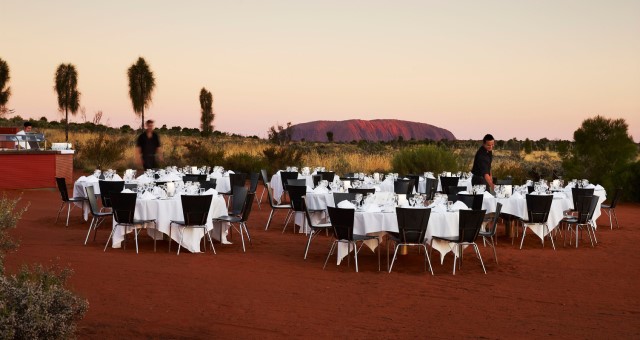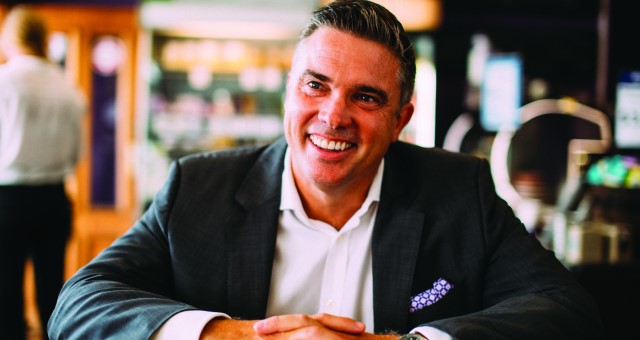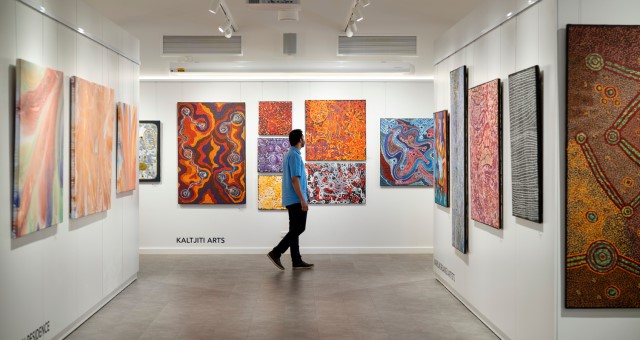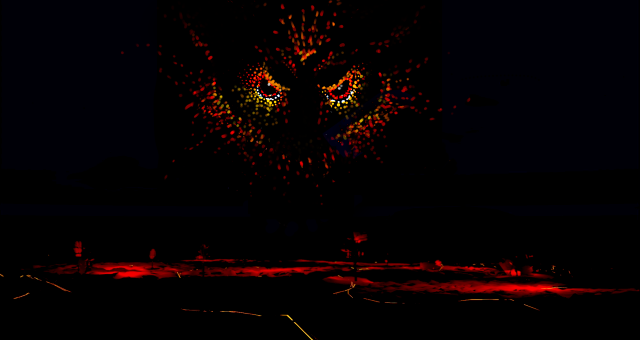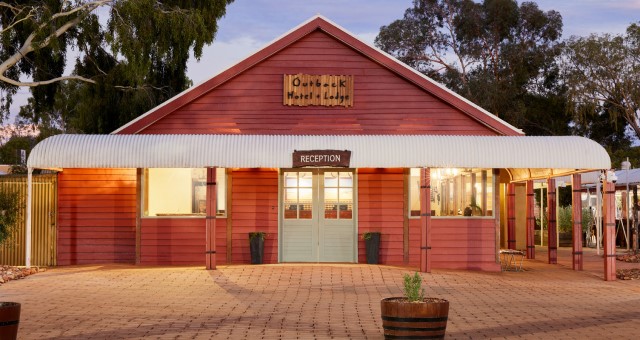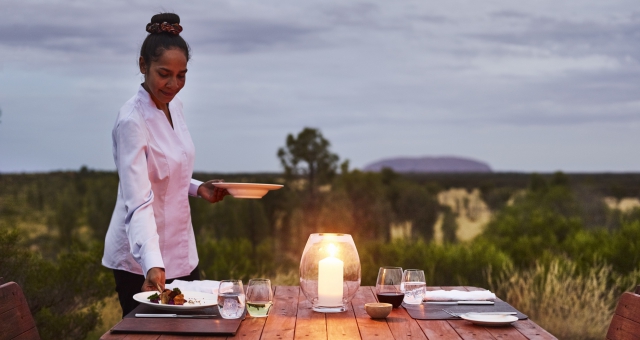Three years ago, when the pandemic brought travel to a halt, Voyages Indigenous Tourism Australia, like many in the industry, used the time to regroup – to work on property refurbs and guest experiences.
“We didn’t sit still over the pandemic – as difficult as it was,” CEO Matthew Cameron-Smith told HM.
Among its many projects was the refurbishment of the Outback Hotel, which opened in April; an art gallery dedicated to the works of central Australian desert artists which opened at Ayers Rock Resort in March 2021; and most recently the launch of Wintjiri Wiru, a fully immersive light and sound show at Uluru that tells a chapter of the ancient Mala story.
With domestic tourism strong once again, Voyages is enjoying the fruits of its labour.
“We want to give our guests variety. We don’t want to rest on laurels in terms of experience development,” said Cameron-Smith.
The Wintjiri Wiru show, which uses 1200 drones, is reported to be the largest ongoing drone show anywhere in the world.
It has been in the works for around six years, since the launch of Field of Light, an art installation of over 50,000 globes that light up the desert at night.
While the show has had an incredible response – including around 14 million media impressions based on launch activity – Cameron-Smith points to the cultural significance of the show as the hallmark of its success.
“We worked in lockstep with the local community for two years of consultation on this,” he said.
“It was a very important story for Anangu as well as for us at Voyages. They were the first to see it and they continue to come and see it, which is wonderful. It’s their voices that narrate the soundtrack.”
Tourism recovery
Over the last 12 months, Voyages has been focused on doing what it can to support the return of international tourism to the Red Centre.
“Aviation is our focus at the moment in terms of smoothing out access for guests who want to come and visit. We’re in regular dialogue with all the carriers, and would-be carriers, into Uluru,” Cameron-Smith said.
“Domestic basically carried us through when Australians couldn’t go anywhere else. And even when the borders did open up, we didn’t see a slowdown in domestic. I think that will probably change in the next 12 months as Australians look to go abroad again.”
Voyages would normally enjoy a 50/50 split of domestic and international visitors, but in March 2023, domestic still accounted for the majority of visitors at around 80% versus 20% inbound travellers.
“Over the Australian summer/northern hemisphere winter, we would normally see group series business come out of North America, the UK and Europe – and that is certainly coming back again as international carriers ramp up their frequency and capacity. We think there’s demand out there and certainly our activity in market has reflected that.”
In regard to Asia, driving the return of travellers from Japan is a key focus for the business.
“We really do think that Japan is poised for recovery,” Cameron-Smith said.
“It’s a combination of the regulations being removed – although it has been a little slow to respond – and, of course, aviation. We believe that Japan will show great gains once the momentum comes back.”
Indigenous employment
This NAIDOC week, Voyages is celebrating its Indigenous cultures with events across its locations in Sydney, Uluru and Mosman Gorge.
“It’s a chance for us to really celebrate with the community,” said Cameron-Smith.
Indigenous team members account for almost a third of Voyages’ team of over 900 people.
“It’s quite a big cohort.”
But beyond the team itself, Voyages is investing in the training of young Indigenous people to prepare them for a career in hospitality or tourism.
Voyages’ National Indigenous Training Academy continues to grow with just under 650 graduates in the 10 years that it has been running.
“The Academy offers young people from all over Australia, the opportunity to live on site work on site and learn on site and they can then graduate with a nationally recognised certification in either hospitality, retail or horticulture,” Cameron-Smith said.
“It’s a really important part of what we do.”
Working with hospitality and tourism partners, Voyages ensures graduates have a pathway to employment.
“For us, it’s really about a career, not just a job,” he said.
“The more options we can offer graduates, the better.”
Cameron-Smith’s message to those businesses that want to boost Indigenous employment is to do your research, listen to the community and work in partnership.
“It’s important to do your research on cultural safety and cultural competency, in terms of understanding what sort of environment you’re offering, and also that the jobs are appropriate,” he said.
“If you’re working in in regional or even in CBD locations, consult your local community. When you sit down with the local community, understand whose land you’re on, understand what they need as a community, what their desire is for the young people.
“I think the best programmes are developed in partnership.”

